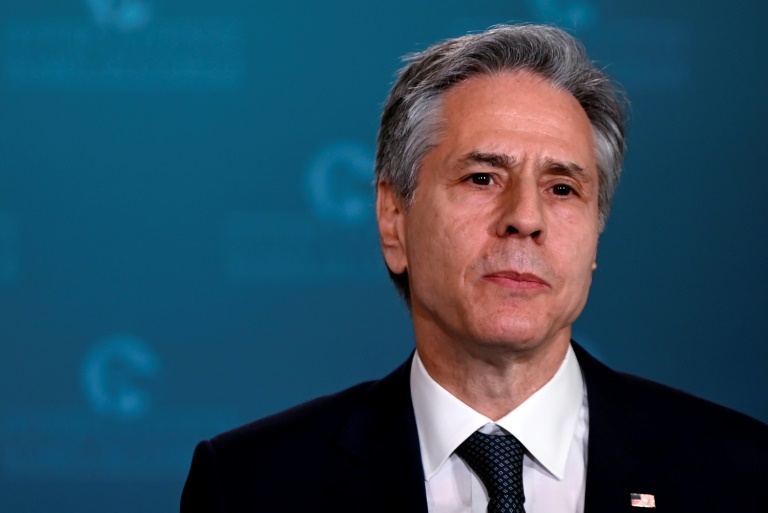
Putin Is Trapped in the Sunk-Cost Fallacy of War

Russian President Vladimir Putin held his strongest strategic hand on Feb. 23, 2022, the day before his ill-judged and catastrophic invasion of Ukraine. He stood on the edge of extracting concessions from Ukraine and the West and, if he had turned his troops around, would have convinced the world that U.S. and British intelligence were crying wolf. He squandered this chance. Since then, he has lost a significant portion of his military forces, called Russian martial prowess into question, and become a pariah (at least in the West). His partial (and stealth) mobilizations and crackdowns on dissent have set what remained of Russian civil society back years. Ukraine never posed a danger to Russia, and Putin’s invasion was predicated on his own imperial ambitions and distorted view of history. Every day the war drags on sees more Russians dead and costs tens of millions of dollars. So why won’t he cut his losses?
There have been many calls, including a nonbinding United Nations resolution, for Putin to turn his forces around and leave Ukraine. There may have been a time for that, perhaps when his initial conquest of Kyiv failed to materialize. He could have used his domestic propaganda machine to convince his subjects that his “special military operation” had brushed back NATO, put Ukraine’s alleged Nazis on notice, and disabled their ability to harm Russia. Other states have accomplished this: For instance, China abandoned its punitive invasion of Vietnam in 1979 after just under four weeks after taking thousands of losses, but nevertheless declared victory.
But now, a year later, Putin cannot escape a self-made trap. He faces a situation like scores of world leaders before him, from imperial Japan to the United States in Iraq, whose aggressive wars had not gone to plan and whose initial casus belli had evaporated, necessitating both new troops and that a new justification for war be offered, especially in the face of increasing costs of the war. The sunk-cost fallacy—the human tendency to rationalize commitment in the face of failure, rather than cutting losses—applies powerfully to war.
Russian President Vladimir Putin held his strongest strategic hand on Feb. 23, 2022, the day before his ill-judged and catastrophic invasion of Ukraine. He stood on the edge of extracting concessions from Ukraine and the West and, if he had turned his troops around, would have convinced the world that U.S. and British intelligence were crying wolf. He squandered this chance. Since then, he has lost a significant portion of his military forces, called Russian martial prowess into question, and become a pariah (at least in the West). His partial (and stealth) mobilizations and crackdowns on dissent have set what remained of Russian civil society back years. Ukraine never posed a danger to Russia, and Putin’s invasion was predicated on his own imperial ambitions and distorted view of history. Every day the war drags on sees more Russians dead and costs tens of millions of dollars. So why won’t he cut his losses?
There have been many calls, including a nonbinding United Nations resolution, for Putin to turn his forces around and leave Ukraine. There may have been a time for that, perhaps when his initial conquest of Kyiv failed to materialize. He could have used his domestic propaganda machine to convince his subjects that his “special military operation” had brushed back NATO, put Ukraine’s alleged Nazis on notice, and disabled their ability to harm Russia. Other states have accomplished this: For instance, China abandoned its punitive invasion of Vietnam in 1979 after just under four weeks after taking thousands of losses, but nevertheless declared victory.
But now, a year later, Putin cannot escape a self-made trap. He faces a situation like scores of world leaders before him, from imperial Japan to the United States in Iraq, whose aggressive wars had not gone to plan and whose initial casus belli had evaporated, necessitating both new troops and that a new justification for war be offered, especially in the face of increasing costs of the war. The sunk-cost fallacy—the human tendency to rationalize commitment in the face of failure, rather than cutting losses—applies powerfully to war.
From the start, Putin’s claims for the war were incoherent. But they have become even wilder and more confused as the conflict drags on. Putin and his mouthpieces have offered various justifications, including ridding Ukraine of Nazis and fascists, that Ukraine is a part of Russia, and complaints about the West’s “satanism” in trying to destroy Russia. In Putin’s world, the West is the aggressor and Russia the victim: “I want to underscore again that their insatiability and determination to preserve their unfettered dominance are the real causes of the hybrid war that the collective West is waging against Russia.” As Putin argues the case, the war is thus existential for Russia: “They do not want us to be free; they want us to be a colony. … They want to loot. They do not want to see us a free society, but a mass of soulless slaves.”
While Putin’s paranoid distortions are easy to identify as falsehoods in the West, his efforts to find new and urgent rationales for an ill-considered invasion are part of a broader pattern that is not alien in the West. Almost all leaders grasp at such rhetorical straws when the going gets tough. For instance, Bush administration officials offered shifting rationales for the war in Iraq once it became clear that Saddam Hussein didn’t have weapons of mass destruction and the initial purpose of the invasion had evaporated like water in a desert. Likewise, the Taliban was toppled by the end of 2001, but U.S. troops still remained in Afghanistan for the following two decades in a futile nation-building exercise before an ignominious withdrawal that saw the Taliban return to power and to harboring al Qaeda terrorists. Even in the face of defeat, meaning must be found by both governments and the governed. While governments set policies that may lead to military debacle or foreign-policy failure, the wider public is asked (or ordered) to bear the dreadful costs. From the impossible Austro-Hungarian demands placed on Serbia after the 1914 assassination of Archduke Franz Ferdinand to the U.S. troop “surges” in Iraq and Afghanistan, the idea that shed blood demands further commitment is an enduring one.
Hemorrhaging blood and treasure and then having nothing to show for it at the end is a disaster for any leader. What’s worse is ending in a less favorable position than at the outset of hostilities, as Putin almost assuredly will be. He probably knows this and continues to double down with the understanding that, if he loses, he will be blamed, and that rebuke would not take the tolerable form of electoral defeat. Like most dictators, he fears his own people most. As goes the Ukraine war, so goes Putin.
While dictators suffer from the occupational hazard of an insecure retirement, all leaders are susceptible to the terrible logic of war—not unlike a ruinously high-stakes poker game—that demands riskier sacrifices to redeem the previous losses. The losses of the major combatants in both world wars come to mind, as does Hussein’s own ruinous 1980 invasion of Iran, and the U.S. misadventures in Vietnam, the Second Gulf War, and Afghanistan. Like a casino, the house of war pays out just often enough to entice strategic gamblers to put their chips down, thinking this time fortune may favor them.
The sunk-cost fallacy of war is to commit ever more troops and resources in a vain attempt to make the previous losses mean something or take on a larger purpose. Leaders locked in armed struggle must convince their citizens that those sacrifices are part of a journey that ultimately leads to a better outcome. This logic isn’t limited to democracies or autocracies. It is better to continue fighting at even greater cost than to admit to the people that the previous sacrifices were in vain and no further blood should be spilled. Ares’s grisly merry-go-round spins ever faster: the more casualties, the more important securing a victory (or least improving on your initial position) becomes.
This is the tragic circle of loss that all sides felt in World War I, when too many soldiers had died to simply return to the previous status quo. Something had to be achieved for the unthinkable losses not to have been meaningless. Sometimes that’s true. Reflecting on the horrific butcher’s bill at the 1863 Battle at Gettysburg, U.S. President Abraham Lincoln told his audience that they must “highly resolve that these dead shall not have died in vain,” and he urged that the work of a free and united country should continue after the ultimate sacrifice of those who gave their last full measure of devotion on the field of battle.
But when the war was futile in the first place, the attempts to find meaning in bloodshed—like the Japanese who extolled their own wartime dead as shattered gems and fallen cherry blossoms—are grotesque. And it is in these times of national crisis when governments take the harshest measures to crush dissent. In Orwellian fashion, Putin has made it illegal to call his war a war, and just a century ago the Sedition Act of 1918 made it illegal for U.S. citizens to use “any language that was disloyal to the government, the Constitution, the military, or the flag” as a measure to combat diminishing morale and public approval of the U.S. campaign in World War I.
From a strategic perspective, the aggressors’ freedom of action becomes severely constrained once the die is cast, as the Germans learned in 1914 once the French stopped their tightly choreographed Schlieffen plan. Then, once in the vise, the answer is often to go all in for victory, even if that means the loss at the end would jeopardize the very state itself. For instance, once it became clear that their opening gambit of 1914 failed, in 1917 the Germans recommenced unrestricted submarine warfare, knowing that it would likely bring the Americans into the war. Their only hope was to win quickly by starving the French and British, because otherwise a slow loss would surely follow. With each wriggle, the noose becomes tighter until the aggressor perishes at the end of a rope of their own making.
It has been claimed that Putin became obsessed with watching gruesome videos of the final moments of Libyan leader Muammar al-Qaddafi’s life, tortured by his own people. Captured by the sunk-cost fallacy of war, badly constrained by his failed initial invasion, and with his future on the line, Putin will feed the bonfire until he either runs out of fuel or it consumes him. As he struggles to find both resources and rationales to continue his war, eventually Putin’s meaningless war will, like so many before, come to have national meaning in Russia as his false motives send tens of thousands of Russians to their real graves.
Unfortunately, Putin has dismissed numerous off-ramp options and crossed his own Rubicon in search of a decisive outcome. His determination to grind on until the bitter end has dashed hopes that he will rise above the sunk-cost fallacy of war and cease his costly and senseless aggression. Now he has come too far. Like his terrified conscripts being mercilessly ordered to advance as cannon fodder against Ukrainian defensive positions, Putin’s only way is forward, to meet his fate.

